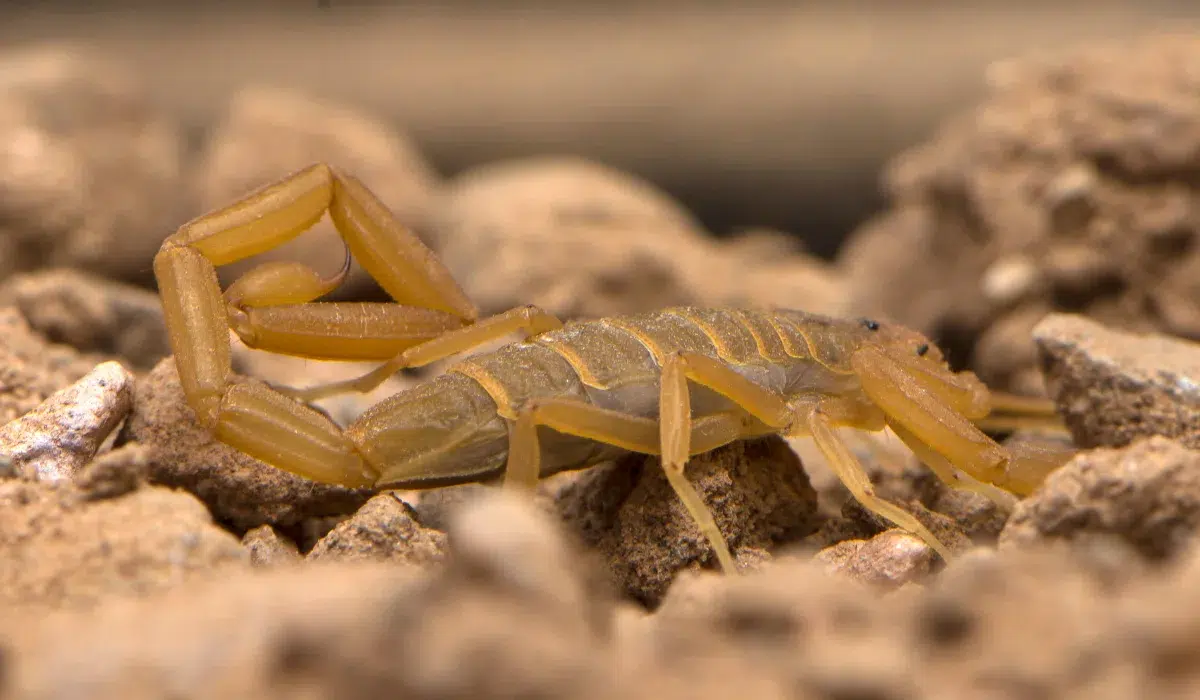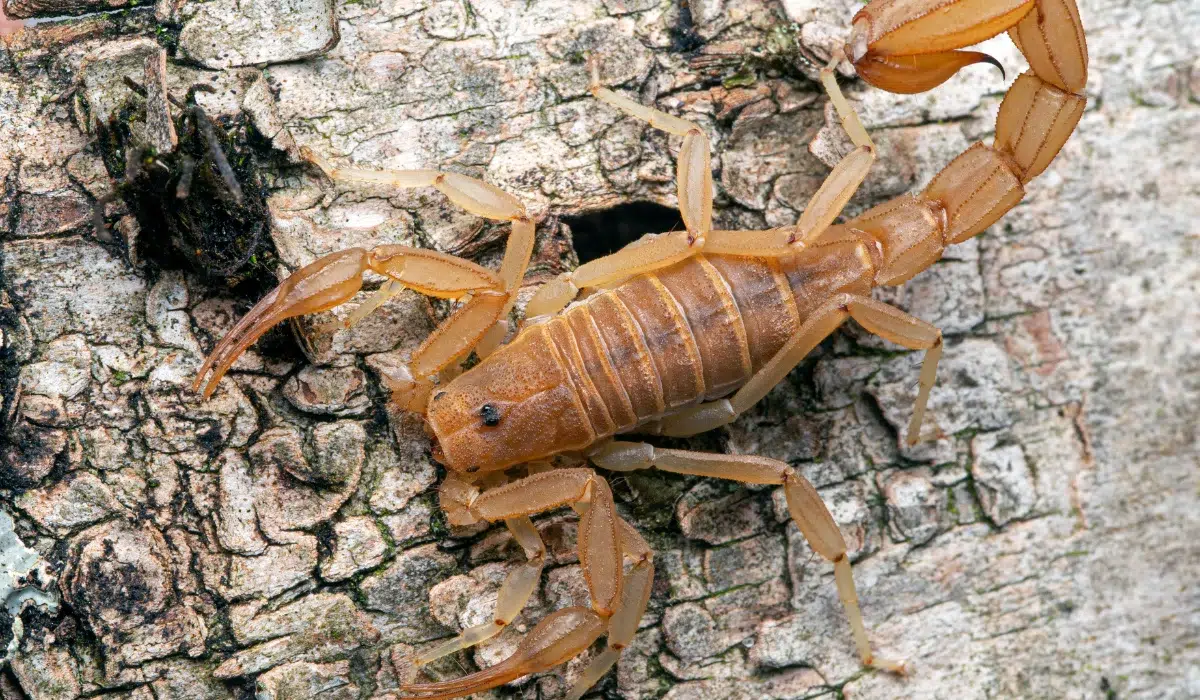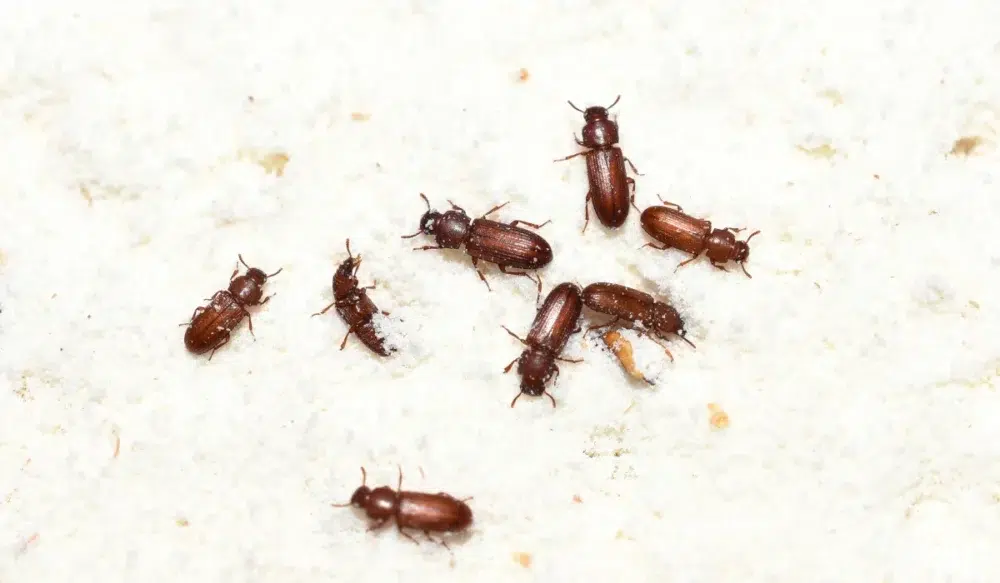Ever wonder if scorpions are more than just desert dwellers in Arizona? For many residents, dealing with these arachnids is a serious concern. Scorpions frequently find their way into homes and yards, posing challenges beyond simple inconvenience. Read on to discover why scorpions might be more problematic than you think and how to protect your home.
Key Takeaways
- Arizona has many scorpions due to its desert climate, and some species, like the Arizona bark scorpion, are very dangerous, especially for children.
- Scorpions are hard to spot because they are active at night and blend into their surroundings, which leads to surprising encounters in homes.
- Proactive steps like sealing cracks, trimming bushes, and using sticky traps can help keep scorpions out of homes.
- Pest control services are helpful when home methods do not work to remove scorpions safely.
Why Are Scorpions a Problem in Arizona?
Scorpions are a significant issue in Arizona due to several factors, such as venomous species and their stealthy nature. Their habits and characteristics make them difficult to spot and avoid, particularly for residents in cities like Phoenix and Tucson.
Here’s a breakdown of the most common reasons they’re a problem in Arizona.
Venomous Species of Scorpions
Arizona has many nonvenomous and venomous scorpions. Consider this comparison so you stay informed and better prepared for any encounters.
| Type of Scorpions | Distinct Features | Risk Level to Humans | Image |
|---|---|---|---|
| Arizona Bark Scorpion | Small, tan, adept at hiding, found in homes and yards | High (Especially dangerous for children and older adults) |  |
| Stripe-Tailed Scorpion | Characteristic stripes on the tail, often found outdoors | Moderate (Painful sting but less severe) |  |
| Giant Hairy Scorpion | Largest scorpion in Arizona, hairy body | Low (Mild venom, primarily defensive) |  |
| Yellow Ground Scorpion | Yellow in color, commonly found in sandy areas | Moderate (Painful sting but less severe) |  |
Abundant Scorpion Population
Scorpions thrive in Arizona’s desert climate, making their population quite large. This abundance is felt acutely in urban areas like Mesa and Scottsdale, where development often encroaches on scorpion habitats. New home construction in places like Chandler and Gilbert forces them to seek shelter in nearby homes.
Nocturnal Habits
Scorpions are primarily nocturnal, meaning they are most active in the middle of the night. This behavior is helpful for survival but creates challenges for people living in areas like Tempe and Paradise Valley. They often emerge searching for food when most humans are winding down for bedtime, leading to nighttime encounters.
Stealthy Nature
Their stealthy nature further complicates the scorpion problem in Arizona. Scorpions have evolved to blend seamlessly into their desert surroundings, providing excellent camouflage against the desert sand, rocks, and even indoor surfaces. They hide in crevices, clothing, or shoes, and people often encounter them accidentally.
Defensive Scorpion Stings
Scorpions in Arizona are equipped with stingers they use defensively when threatened. While not all stings are dangerous, the sting from an Arizona bark scorpion can be medically significant. It can cause symptoms like difficulty breathing, severe pain, numbness, or allergic reactions. Found across North America, it uses its sting for defense rather than aggression.
How to Identify Scorpions in Your Arizona Home
To protect your home and family, knowing how to identify scorpions and signs of infestation is essential. Below are practical steps to help you detect and address scorpion activity effectively.
- Use a UV Light: Scorpions glow under UV light, making them easier to spot at night. Homeowners can use a blacklight to inspect crevices and hiding places.
- Watch for Seasonal Activity: During scorpion season, which typically occurs during the warmer summer months, activity increases. Check near water sources like kitchens and bathrooms or in dark, secluded areas.
- Inspect Entry Points: Look for gaps under doors or small openings where scorpions can enter. Pay attention to garages, basements, and attics.
- Identify Signs of Scorpion Infestations: Shed exoskeletons or many sightings in a short period suggest a larger issue.
- Apply Preventive Measures: Early detection helps prevent potential harm, including severe reactions to stings. Seal entry points and reduce clutter where scorpions might hide.
How to Prevent Scorpions From Entering Your Arizona Home
Keeping scorpions out of a home needs practical steps. With the right approach, you can reduce visits from these unwelcome guests.
- Seal cracks and crevices with caulk or weather stripping. Scorpions can squeeze through very small openings. This is an effective step in keeping them outside.
- Remove potential food sources. Crickets and cockroaches attract scorpions. Keep the home clean and use pest control products to manage these insects.
- Trim landscaping near the house. Bushes and trees provide hiding spots and easy access for scorpions. Keeping them pruned helps prevent entry.
- Install door sweeps on exterior doors. These act as barriers against scorpions, preventing them from crawling under doors.
- Set up sticky traps along walls and in dark corners. They capture scorpions that may wander inside.
Most scorpion stings aren’t life-threatening, often comparable to a bee sting in pain. However, anyone who is stung should seek medical attention immediately to ensure safety.
When to Call Pest Control Services for Scorpions
As Arizona residents, you know that scorpions can be unwelcome guests in homes. These arthropods often hide in dark corners, making it tough to handle them alone.
Some may try DIY methods, but not everyone finds success. At this point, contacting a pest control company can make all the difference.
At Green Home Pest Control, our scorpion control team specializes in safe pest management for infestations. If you see signs of these Arizona pests in your Phoenix or Tucson home, we’re here to help bring safety and peace of mind.
For more information, call our phone number to get a free quote.
RELATED: What Do Scorpions Eat? Understanding The Feeding Habits Of Arizona’s Scorpions
RELATED: Scorpion Season In Tucson: When It Peaks And How To Prepare




